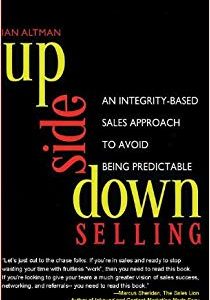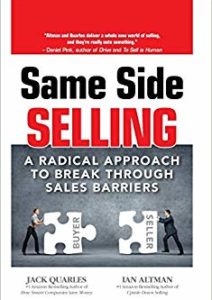While preparing for a recent corporate training workshop, I recommended to the company’s management team that we conduct a pre-survey with their participants. The results pointed to two critical sales issues that you cannot afford to ignore.
The company’s management team asked, “Why do we need to do a survey? We know what issues we have.” I explained that responses from the survey help me to prepare for the workshop and focus on what matters most to the participants. After some discussion, the management team reluctantly agreed to the survey.
In the survey, we ask questions related to what would help the participants succeed in growing the business. Survey responses from the participants ended up surprising everyone. The two obstacles that came up for this company are not uncommon, but if you don’t address them, they’ll cost you business, and staff.
Too Many Accounts
“We have too many accounts to manage” came in as one of the most frequent responses. When we probed a bit deeper, we uncovered disturbing facts. Each salesperson and each account manager had a list of well over one hundred accounts. It is impossible for one individual to pay careful attention to each of one hundred customers. Being overloaded with accounts leads to major problems:
Strategic Account Guessing:
Management assigned more accounts than the rep can handle. This means that management must want the rep to determine which accounts are strategic, and which ones should be ignored. This usually translates to pursuing the accounts that are the easiest to contact instead of the ones that are the best fit.
Feed The Whine:
When reps recognize that some of their accounts have to be ignored, the whining clients tend to get the most care and feeding. Unfortunately, everyone knows that the clients who whine the most are generally NOT your best clients. When you are not thinking strategically, it is easy to lose your attention with those who make the most noise.
Sometimes companies think if their people just entered more data into the CRM solution, managing accounts would be easier. CRM processes are set up to ensure that reps track information for their own purposes as well as others in the organization. These laborious processes only guarantee that reps will likely opt to not use their CRM. CRM products and processes need to change to be more rep friendly, which makes them more likely to be adopted.
Our Stuff Costs Too Much
Many of the respondents shared that their pricing was too high in the market. During our workshop, I asked them to share with me what value their service provided to customers. The first time I asked the question, I was faced with a room of blank stares.
After some discussion, we started to uncover the problems they solve for their customers, the impact those problems have on the customer’s businesses, and the likely results their customers would see after a successful implementation. I then asked them, “Based on what you know now, how many of you think you are underpricing your product?” Nearly the entire room raised their hands.
How To Fix These Challenges
Uncovering these challenges was a byproduct of the preparation we do for workshops. But, you can do this same sort of thing in your company. You have to ask your team questions to uncover what challenges they face that prevent them from growing business.
In the first case of too many accounts, this is a result of old-school methods. Companies used to assign over one hundred accounts figuring that most of them would be a waste of time. Companies figured they needed ten accounts for each good one. Instead, define the criteria that make a good client. Then focus on those accounts that meet that criteria.
If you have defined your highest value clients in the prior step, you can easily share that information with your team so they see the value you deliver to customers. Salespeople who think your price is too high generally are comparing your solution to an inferior competitor or to a customer request for a lower-price. Neither is a valid comparison. Price matters most when the person doing the selling thinks price matters most.
A Good Question
Finally, the management team asked “Why did you share this with Ian and not with us?” In some cases, your team might not think that management will respond to their comments. They might even fear being punished for their candor. In every workshop, I start by reviewing the submitted survey responses. This way, the participants know a) that I listened to their input; and b) have tailored the session to address their issues. You can do the same. I don’t even have to be there.
How Many Is Too Many?
What surprising feedback have you received or shared with others? How many accounts do you think you can reasonably handle? Share this article and take the conversation to Twitter, Linkedin, or your favorite social media channel.
This blog post was originally published in Forbes











